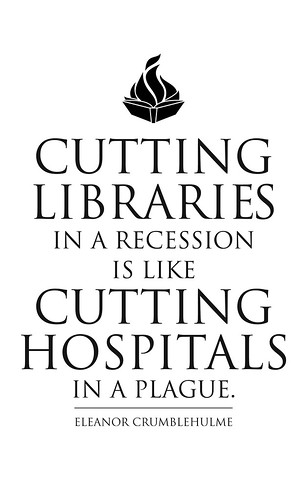
cc licensed flickr photo shared by Daniel Solis
With the economy in a continuing slump, high school graduates and people looking to switch careers are looking for professions that are recession-proof. Some have managed to stay securely employed throughout the recent recession, and others found that their career wasn’t as secure as they thought it would be. So, what are some recession-proof jobs?
Engineering Is Very Lucrative
Engineering is one of the few careers that remain stable regardless of what’s happening with the economy. There are a number of different types of engineers and one of the fastest growing engineering fields is computer software engineering. Building and infrastructure engineers will also continue to enjoy stable employment.
In the case of software engineering, according to the Occupational Outlook Handbook put out by the United States Department of Labor’s Bureau of Labor Statistics, the amount of jobs is projected to grow 30 percent between 2010 and 2020. A person will need, at least, a four-year degree to be considered for most types of engineering.
Home Health and Personal Care Aides Is a Swiftly Growing Field
A home health and personal care aide is someone who assists people in taking care of day-to-day tasks when they are unable to do them on their own. Tasks that those in this profession help with include bathing, dressing, cleaning and sometimes administering medication or checking vital signs.
The field of home health and personal care is expected to grow 70 percent by 2020. Unlike other professions helping the disabled, mentally ill and the elderly, a home health and personal care aide doesn’t even need to complete high school to qualify.
Nursing Is Still An Expanding Field
As with engineering, the world will always need nurses. The three main types of nurses are Registered, Licensed Practical and Licensed Vocational. The job potential for an RN (Registered Nurse) is expected to continue to grow by about 26 percent between now and 2020. Job expansion for LPNs (Licensed Practical Nurses) and LVNs (Licensed Vocational Nurses) is expected to grow by 22 percent.
While it is slightly more difficult to become an RN, it may be a more lucrative profession than that of a LPN or LVN. There are nursing programs across the country that provide quality educations and it only takes about two years to become an RN, LPN or LVN. Because of the short educational period, nursing is also one of the best options for switching careers.
Use Logistics Skills And Math Skills As A Cost Estimator
The title of this job is exactly what the job entails. As a cost estimator, a person will project costs for various projects. These include construction projects, product manufacturing and various services. While cost estimators could provide services for a number of industries, they will often specialize in one.
To become a cost estimator, a person will usually have to obtain a four-year degree while focusing on logistics, statistics and mathematics. In some cases, workers in any of the fields that use cost estimators may bypass the need for obtaining a degree if they have an analytical mind. This field is expected to grow by 36 percent between by 2020.
Is It Better To Get The Degree Or Not?
Obviously, with professions like nursing or engineering, getting a degree is absolutely required, and becoming a cost estimator might require one. However, in cases like the home aide, all that’s really needed is a willingness to help others and a good work ethic. However, the advantage to obtaining a formal degree is that they can usually be applied to another field.

